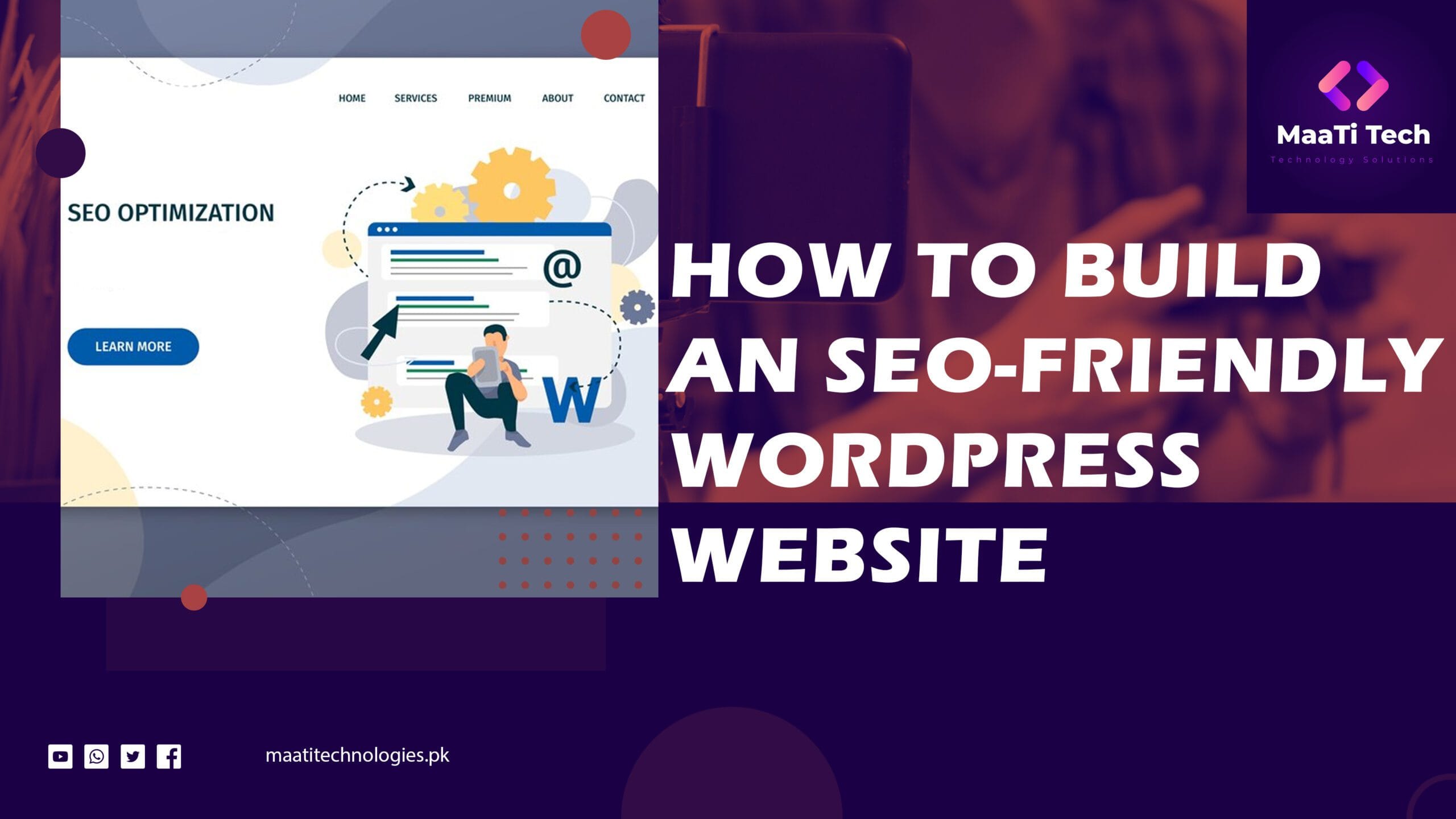How to Build an SEO-Friendly WordPress Website The Complete Guide
Creating an SEO-friendly WordPress site is crucial if you want to enhance your online presence, attract organic traffic, and rank higher on search engine results pages (SERPs). With WordPress powering over 40% of all websites, it’s become a go-to platform thanks to its adaptability, ease of use, and SEO capabilities.
This guide will take you through a step-by-step approach to building an SEO-optimized WordPress site. Whether you’re a business owner, blogger, or freelancer, this guide equips you with the essential SEO tools and techniques to increase your visibility and maintain your site’s search engine performance.
Table of Contents

1. Introduction
Building an SEO-friendly WordPress website might seem overwhelming, but it’s a necessary step for growing your online presence. By following the strategies outlined here, you’ll learn not only how to construct a site that ranks well but also how to keep it optimized for long-term success.
2. Why Choose WordPress for SEO?
WordPress stands out as one of the most SEO-friendly content management systems (CMS) available. Its open-source nature, extensive plugin library, and flexibility make it a top choice for anyone looking to enhance SEO.
Key SEO Benefits of WordPress:
- SEO-Friendly URLs: Customize your permalinks for better search engine readability.
- Built-In Blogging Features: Easy-to-manage blog functionality that supports SEO efforts.
- Plugins Galore: Automate SEO tasks, from performance optimization to content structuring.
- Mobile-Responsive Themes: Optimized for mobile, essential for SEO success.
3. SEO Basics: What You Need to Know

Before diving into WordPress optimization, it’s critical to understand the basics of SEO. SEO, or search engine optimization, is the process of refining your website to rank higher and be more visible to users searching on engines like Google.
On-Page SEO: Focuses on optimizing individual web pages, including meta tags, keyword usage, and content structure, to improve both user experience and search rankings.
4. Setting Up Your WordPress Website for SEO Success
Choosing the Right Hosting Provider:
Your web host can greatly affect your site’s speed and uptime, which impacts SEO. Opt for a reliable hosting provider like:
Installing WordPress:
Most hosting providers offer a one-click installation for WordPress, making setup a breeze.
Selecting an SEO-Friendly Theme:
Choose a theme that is fast-loading, mobile-responsive, and SEO-optimized. Some top choices include:
5. Best SEO Plugins for WordPress
Plugins are essential for automating many SEO tasks. Here are two must-haves:
- Yoast SEO: Optimizes your content and meta tags with ease.
- All in One SEO Pack: A great alternative, offering a user-friendly interface for managing SEO tasks.
6. Optimizing URL Structure and Permalinks
Why Optimized URLs Matter:
SEO-friendly URLs are critical for both search engines and users. Keep URLs short, descriptive, and keyword-rich.
Setting SEO-Friendly Permalinks:
Go to Settings > Permalinks in WordPress and select the “Post Name” option. This gives your URLs a clean, optimized structure.
7. Creating SEO-Optimized Content
Content is the cornerstone of any SEO strategy. To rank well, your site needs valuable and relevant content.
Tips for Keyword Research:
Use tools like Google Keyword Planner or Ahrefs to discover high-volume, low-competition keywords. Target long-tail keywords to improve your chances of ranking.
Using Headings (H1, H2, H3):
Proper use of headings not only enhances readability but also boosts SEO. Place your primary keyword in the H1 and secondary keywords in H2 and H3 tags.
8. Image Optimization for SEO
Optimized images can enhance your site’s user experience and SEO performance.
How to Optimize Images:
Compress images using tools like TinyPNG and ShortPixel, and always include descriptive alt text.
9. Making Your WordPress Site Mobile-Friendly

With Google’s mobile-first indexing, a mobile-optimized site is now more crucial than ever.
Mobile-Responsive Themes:
Use responsive themes like Astra or GeneratePress to ensure your site adapts to different screen sizes.
10. Speed Optimization for SEO
Website speed is a key ranking factor, with faster sites offering better user experiences.
Caching Plugins:
Use caching plugins like WP Super Cache or W3 Total Cache to improve site speed.
Optimize Code and Images:
Minimize CSS/JavaScript files and enable lazy loading for images.
11. Internal Linking for Better SEO
Internal links help both search engines and users navigate your content more efficiently, boosting the SEO performance of key pages.
Best Practices for Internal Linking:
Use descriptive anchor text and link to relevant pages within your site to pass SEO value.
12. Building Backlinks
Backlinks from reputable sites signal to search engines that your content is trustworthy and valuable.
How to Earn Backlinks:
- Guest Blogging: Write for other sites in exchange for backlinks.
- Broken Link Building: Find broken links on other sites and suggest your content as a replacement.
13. Implementing Schema Markup and Structured Data
Schema markup helps search engines better understand your content, often leading to rich snippets in search results.
Using Plugins for Schema:
Install plugins like Schema Pro or Yoast SEO to easily implement structured data on your site.
14. Crafting SEO-Friendly Meta Tags and Descriptions
Effective Meta Tags:
Write concise and relevant meta titles and descriptions that include your target keyword to boost click-through rates.
15. Conclusion
Creating an SEO-friendly WordPress site requires attention to detail, from choosing the right plugins and themes to optimizing your content and structure. Remember, SEO is an ongoing effort—stay persistent, and over time, your site will rank higher and attract more organic traffic.
FAQs
- What’s the best SEO plugin for WordPress?
Yoast SEO and All in One SEO Pack are top choices. - How can I make my WordPress site mobile-friendly?
Use a responsive theme and Google’s Mobile-Friendly Test to ensure usability. - How does speed affect SEO?
Faster websites rank better and provide a smoother user experience. - What is a permalink?
Permalinks are the URLs of your posts and pages. SEO-friendly permalinks are clean, descriptive, and keyword-rich. - Can I optimize images for SEO in WordPress?
Yes! Compress images and use alt text to improve both speed and search engine understanding.



